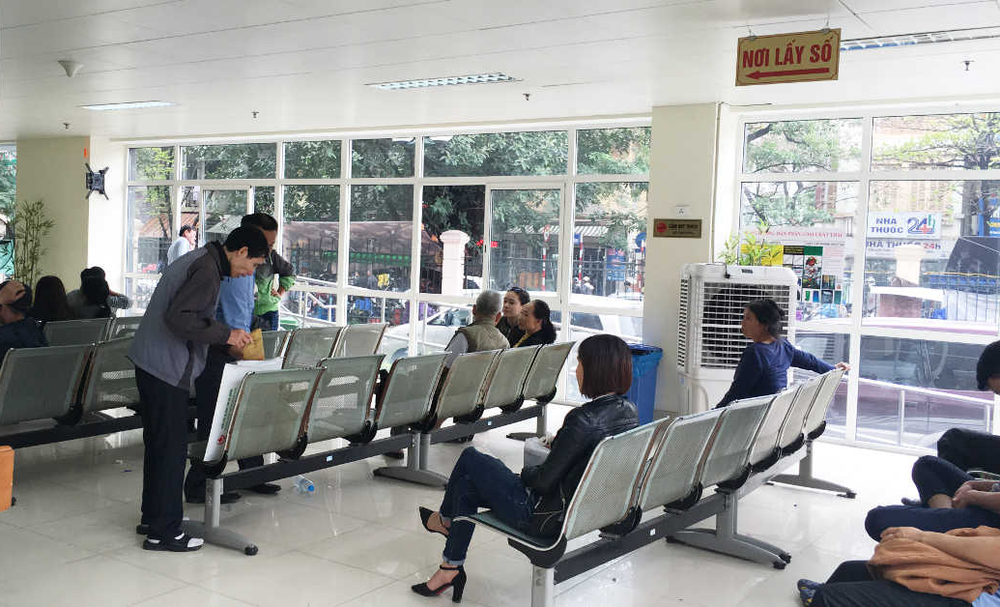Early cancer screening saves thousands of lives every year. Early cancer screening helps diagnose cancer at an early stage, when there are more treatment options and a higher chance of successful treatment.
However, the current rate of cancer screening is not high, and many types of cancer are not actually screened for early. This stems from various reasons, including prejudices and invisible barriers that create health inequality in cancer screening and early detection.
Screening helps detect cancer at an early stage, even before symptoms appear. When abnormal tissue or cancer is detected early, treatment or cure may be easier. By the time symptoms begin to appear, the cancer may have already grown and spread, affecting the chances of treatment or cure.
In theory, people in high-risk groups should undergo screening. However, in reality, not many people know how to get screened for cancer, leading to inequalities in diagnosis, treatment, and outcomes for those diagnosed with cancer. Therefore, breaking down screening barriers to ensure equal access to cancer prevention and early diagnosis for everyone is essential.
Fear and stigma surrounding cancer.
The first barrier that needs to be mentioned is stigma. Many people fear cancer, so they don't talk about it. And if cancer isn't talked about, then obviously awareness of cancer will be lower. Conversations about cancer usually only happen after someone has died from cancer. These are issues of knowledge and education . People hear stories about cancer at funerals. They've never heard positive stories about people who had cancer or who had it and survived. Because the people around them won't talk about it. When we fear something, sometimes we fall into prejudice about it.
For example, many people believe that cancer is a matter of fate or incurable, so they may not consider early diagnosis beneficial, nor are they proactive in treatment. Some studies have shown a link between low screening rates, high mortality rates, and negative attitudes towards cancer screening and treatment for lung and colorectal cancers.
Feeling embarrassed when having sensitive areas examined.
Furthermore, screening for breast, cervical, and bowel cancers involves sensitive areas of the body. Due to education or religious beliefs regarding moral standards for women, especially among young, unsexual women, many are hesitant to get screened, feeling uncomfortable or uneasy about having these areas examined by a doctor. Additionally, the risk of cervical cancer is linked to a person's sexual history, so they fear that a positive result could lead to conflict in their relationship with their husband or partner. These psychological barriers related to traditional female virtue and moral standards somewhat limit many women from undergoing cancer screening.
Reluctance to see a doctor
The majority of patients in Vietnam do not undergo general check-ups for many years and only seek medical attention when they can no longer bear the pain. By then, the disease has progressed to a very advanced stage, leading to complicated treatment, increased treatment time and costs, and even a higher risk of death. Late detection is one of the main reasons for the high mortality rate from cancer in Vietnam. This situation is not only seen with cancer but also with many other diseases. This is because many people are afraid of going for check-ups because they fear discovering their illness, knowing about the disease will cost money, and thus they are afraid of doctors.
 |
The mindset of only seeking medical attention when pain becomes unbearable is one of the reasons why diseases are detected late and the prognosis for treatment is poor. (Illustrative image) |
Others are indifferent to their health, or feel unimportant and therefore neglect their well-being. This is often seen among mothers, grandmothers, or the breadwinners of the family. They are accustomed to sacrificing for others, so they often ignore invitations for health checkups, citing reasons such as being busy caring for children and grandchildren, doing housework, etc., and not noticing any unusual signs in their bodies (or if they do, they tolerate it and intentionally ignore it).
Economic conditions, living conditions
People living in remote areas and those with difficult living conditions are unaware of the benefits of cancer screening, lack access to it, and may not be able to afford screening tests because they need to prioritize other expenses in their daily lives. Many are even hesitant to take a few days off work to go for a check-up, as it would mean losing income and incurring medical costs, or if a diagnosis is made, additional medication expenses.
Break down the barriers.
Many of these barriers are psychological, so the root of the problem lies in education and raising public awareness about cancer, as well as the importance of cancer screening. Once people understand the benefits of cancer screening, they will be more willing to participate. Furthermore, disseminating knowledge about cancer will lead to a more open-minded perspective on the disease, thereby increasing understanding of cancer.
Furthermore, the way we disseminate knowledge about cancer can gradually eliminate the embarrassment women feel when undergoing cancer screenings on sensitive body parts, stemming from their attempts to maintain moral standards. Previously, childbirth and family planning were sensitive topics, but now, thanks to public awareness campaigns, they have become commonplace. If cancer is also properly addressed within the community, psychological barriers, fears, and taboos surrounding cancer will gradually be removed.
Source link



![[Photo] Prime Minister Pham Minh Chinh presides over the meeting of the Steering Committee for the Development of Science, Technology, Innovation, Digital Transformation and Project 06.](https://vphoto.vietnam.vn/thumb/1200x675/vietnam/resource/IMAGE/2026/02/25/1772024613089_1772024091685-jpg.webp)
![[Photo] Prime Minister Pham Minh Chinh receives the Director General of TASS News Agency (Russian Federation)](https://vphoto.vietnam.vn/thumb/1200x675/vietnam/resource/IMAGE/2026/02/25/1772024599891_dsc-8041-jpg.webp)















































































![[Photo] Lung Phinh is covered in white plum blossoms.](https://vphoto.vietnam.vn/thumb/402x226/vietnam/resource/IMAGE/2026/02/25/1772036291497_tl-z7563533595318-d0f6815e01d4b292632a5f65d005af7d-8745-jpg.webp)


















Comment (0)